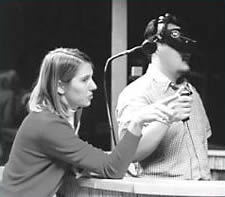 Engineering psychology has been receiving increased recognition recently due to rapid growth and advancement in the field. Although most people are aware of engineering and psychology as separate entities, the idea of combining the two together into one profession is quite baffling.
Engineering psychology has been receiving increased recognition recently due to rapid growth and advancement in the field. Although most people are aware of engineering and psychology as separate entities, the idea of combining the two together into one profession is quite baffling.
The following will provide an in-depth explanation into what engineering psychology is and why these specialized psychologists are so important.
What is Engineering Psychology?
Engineering psychology is defined as a field of psychology that centers on the relationship between man and machinery. The field specializes in exploring the correlations between human beings and the products that they use daily. It studies how individuals relate with, recognize, and are influenced by certain goods and technologies on the market. Engineering psychology is also important for adapting technology, products, machinery, or work environments to improve human behavior and capabilities.
Although it first established as a subfield of experimental psychology, engineering psychology grew so rapidly during World War I and II that it became its own field. At that time, the expertise of these psychologists was vital to creating more efficient weaponry and equipment that would not malfunction or fail due to human error. Today, engineering psychology is expanding faster than expected as individuals are increasing their interactions with technology. According to the American Psychological Association, increased demand in engineering psychology is also attributed to the need for designing medical equipment and operating room layouts to reduce medical errors.
What do Engineering Psychologists Do?
Engineer psychologists are trained to utilize psychological theories and principles in order to provide optimal solutions for real-world problems affecting humans. Psychologists in the field minimize risks of accidents and fatal errors by ensuring products, equipment, and systems are safer for the public. Engineering psychologists also conduct research based on user feedback and surveys to discover how certain products are appealing to different demographic groups. In the process, they can spot all potential problems, safety issues, or difficulties to improve product designs in the future.
Professionals in engineering psychology can specialize in aerospace, human performance, education, virtual reality, healthcare systems, technology, workplace safety, usability, environmental safety, and many endless opportunities. Engineering psychologists are often employed throughout a wide range of different fields. They can be found working in computer science, engineering, aviation, software development, marketing, or business. Employers are typically corporations, businesses, colleges, and government agencies. Since medical equipment often carries a patient’s life in its hands, engineering psychologists can find numerous positions within the healthcare field of research too.
How Do You Become an Engineering Psychologist?
Engineering psychologists usually begin their careers by obtaining an undergraduate bachelor’s degree in psychology. After successful completion of the degree, the majority further their education with a master’s or doctorate degree in engineering psychology. It is recommended that students select a program that has been accredited by the Human Factors and Ergonomics Society for optimal training. Throughout the program, students gain experience in industrial psychology, research methods, human factors, ergonomics, bio-mechanics, and statistics.
With continuous advances in technology and consumerism, engineering psychology will continue to explode and create more job opportunities for psychologists specializing in the field. Consumers and businesses are consistently building demand for technology and products that are safer and easier for human use. Therefore, the future of engineering psychology is expected to be very bright for dedicated individuals pursuing this rewarding career.




